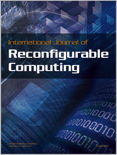
International Journal of Reconfigurable Computing
Scope & Guideline
Empowering Innovations in Hardware Flexibility
Introduction
Aims and Scopes
- Reconfigurable Hardware Design:
The journal emphasizes research on the design and implementation of reconfigurable hardware architectures, particularly using FPGAs. This includes novel design methodologies, optimization techniques, and hardware-software co-design. - Applications of Reconfigurable Computing:
It covers a wide range of applications for reconfigurable computing technologies, including industrial automation, signal processing, and embedded systems, showcasing how flexibility in hardware can meet specific needs. - Sustainability and Efficiency in SoCs:
Research focused on improving the sustainability and efficiency of FPGA-based systems is a key area, exploring techniques for power management, thermal conditions, and overall resource optimization. - Intellectual Property Protection Techniques:
The journal includes studies on methods for ensuring intellectual property protection in reconfigurable hardware, demonstrating its commitment to addressing challenges in ownership and security in the digital domain. - Open-source Development:
There is a growing interest in the open-source movement within reconfigurable computing, with publications examining the implications and benefits of open-source hardware and software solutions.
Trending and Emerging
- Run-Time Adaptation Techniques:
There is a growing focus on methodologies that allow for run-time adaptation of FPGAs and SoCs. This trend is significant as it addresses real-time operational challenges such as power management and thermal conditions. - Integration of IoT with Reconfigurable Computing:
Emerging research themes include the integration of reconfigurable computing with Internet of Things (IoT) technologies, exploring how FPGAs can enhance the flexibility and efficiency of IoT devices. - Security Measures in Reconfigurable Systems:
The importance of security in reconfigurable computing is becoming increasingly prominent, with recent studies investigating techniques such as hardware obfuscation for protecting intellectual property and ensuring system integrity. - Open-Source FPGA Solutions:
An emerging theme is the exploration of open-source FPGA solutions, which are gaining traction in the research community for their potential to democratize access to advanced computing technologies and foster collaborative development.
Declining or Waning
- Basic Theoretical Frameworks:
There seems to be a decline in publications focusing on foundational theoretical frameworks of reconfigurable computing. More recent papers emphasize practical applications and methodologies rather than theoretical explorations. - Legacy Reconfigurable Computing Techniques:
Older techniques in reconfigurable computing, such as traditional FPGA configurations without dynamic adaptation, are becoming less frequent. The journal appears to be shifting towards more advanced and adaptive methodologies. - Single-use Applications:
Research centered around single-use applications of FPGAs is waning. There is a noticeable trend towards multi-functional and adaptable applications that can cater to various operational modes and conditions.
Similar Journals

IEEE Open Journal of the Communications Society
Fostering Collaboration in the Global Communications CommunityWelcome to the IEEE Open Journal of the Communications Society, a premier open-access publication dedicated to advancing the fields of computer networks and communications. Launched in 2020 by the esteemed IEEE-Institute of Electrical and Electronics Engineers, this journal operates under a commitment to disseminate high-quality, peer-reviewed research that fosters innovation and collaboration within the global communications community. With an impressive impact factor and currently positioned in the Q1 category of Time's rankings for Computer Networks and Communications (2023), the journal ranks 21st out of 395 in its field, placing it within the top 6% globally. It serves as a vital forum for researchers, professionals, and students, providing them with immediate access to pioneering studies and emerging trends. Being fully open access, all published articles are freely available to enhance the reach and impact of your research. Join us in exploring transformative ideas and technologies that shape the future of communications.
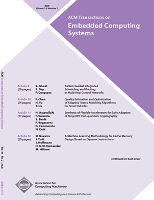
ACM Transactions on Embedded Computing Systems
Fostering breakthroughs in hardware and software integration.ACM Transactions on Embedded Computing Systems (ISSN: 1539-9087, E-ISSN: 1558-3465), published by the Association for Computing Machinery, is a premier academic journal dedicated to advancing the study and application of embedded computing systems. With a focus on both hardware and software aspects, this journal holds a distinguished Q2 ranking in its field (2023) and has achieved notable recognition within Scopus rankings, particularly in Hardware and Architecture (Rank #97/177) and Software (Rank #231/407). Encompassing research from 2002 to 2024, it serves as a crucial platform for disseminating cutting-edge findings that drive innovation and foster scholarly dialogue among researchers, professionals, and students alike. Although it does not offer open access options, the journal remains essential for those seeking to deepen their understanding of the complexities of embedded systems, contributing significantly to the growth of knowledge across disciplines.
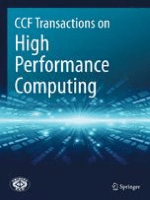
CCF Transactions on High Performance Computing
Innovating Tomorrow's Computational Solutions TodayCCF Transactions on High Performance Computing, published by SPRINGERNATURE, is an esteemed academic journal dedicated to advancing research in the field of high-performance computing. With an ISSN of 2524-4922 and E-ISSN of 2524-4930, this journal provides a platform for disseminating innovative findings, methodologies, and technologies that shape computational practices within various domains. Operating from Germany, it serves a global audience, reinforcing its impact through an impressive categorization in the Q3 quartile across multiple fields, including Computer Science Applications and Information Systems. The journal, which covers research from 2019 to 2024, plays a crucial role in bridging gaps between theory and practical implementation in hardware architecture and software systems. Although it is not an open-access journal, its contributions are invaluable for researchers, professionals, and students invested in the continuous evolution of high-performance computing. With Scopus rankings that highlight its relevance and influence in the academic community, CCF Transactions on High Performance Computing remains a key resource for the latest developments in this dynamic and rapidly evolving discipline.

JOURNAL OF SUPERCOMPUTING
Unraveling the Complexities of Theoretical Computer ScienceJOURNAL OF SUPERCOMPUTING is a premier academic journal published by SPRINGER, situated in the Netherlands, that has made significant contributions to the fields of computer science, particularly in hardware and architecture, information systems, software, and theoretical computer science. With a robust publication history spanning from 1987 to 2024, this journal has cultivated a strong reputation, evidenced by its Category Quartiles ranking in the Q2 category across multiple relevant domains in 2023. The journal's Scopus rankings further underscore its influence, boasting a 78th percentile in mathematics and theoretical computer science, revealing the high quality of research disseminated within its pages. As vital discourse unfolds in the realm of supercomputing—where innovative techniques and technologies rapidly evolve—this journal serves as a crucial platform for researchers, professionals, and students to explore cutting-edge studies and build upon the foundations of knowledge in this dynamic field.
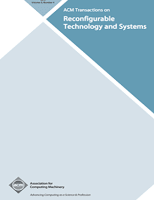
ACM Transactions on Reconfigurable Technology and Systems
Advancing the Frontiers of Reconfigurable TechnologyACM Transactions on Reconfigurable Technology and Systems is a leading journal in the field of computer science, specifically focusing on the rapidly evolving area of reconfigurable technology. Published by the esteemed Association for Computing Machinery, this journal provides a vital platform for researchers and practitioners to share groundbreaking findings and innovative methodologies that drive advancements in system design, architecture, and implementation. The journal boasts a commendable impact factor and has positioned itself within the top quartile (Q1) of computer science journals as of 2023, with a notable Scopus rank of #64 out of 232 in the General Computer Science category, placing it in the 72nd percentile. As a trusted resource for the latest developments from 2008 to 2024, the journal encourages submissions that challenge conventional approaches and propose novel solutions in reconfigurable technologies. Although it is not open access, it continues to strive for accessibility and dissemination of knowledge that is critical for academics, industry professionals, and students alike.

Jordan Journal of Electrical Engineering
Unleashing Potential through Open Access ResearchJordan Journal of Electrical Engineering, published by TAFILA TECHNICAL UNIVERSITY (TTU) in Jordan, serves as a critical platform for disseminating groundbreaking research in the fields of electrical engineering, energy systems, and related disciplines. With an ISSN of 2409-9600 and an E-ISSN of 2409-9619, the journal is committed to promoting advancements in energy engineering, biomedical applications, control systems, and signal processing among others. Despite its recent establishment in 2023, it has been indexed in multiple categories within Scopus, receiving rankings that reflect its emerging role in the academic community. Researchers and professionals are encouraged to contribute and access cutting-edge articles through open access options, ensuring that knowledge is readily available to all interested parties. As the journal continues to grow, it aims to bridge gaps in knowledge and stimulate dialogue, thereby supporting innovation and practical applications in the engineering sector.
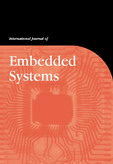
International Journal of Embedded Systems
Catalyzing Collaboration in Embedded TechnologyInternational Journal of Embedded Systems, published by INDERSCIENCE ENTERPRISES LTD, is a pivotal platform for researchers and professionals engaged in the dynamic fields of embedded systems, hardware, and software architecture. Established in 2005, this journal addresses the intricate interplay between software and hardware components in embedded system design and offers valuable insights into the latest advancements and methodologies. With its ISSN 1741-1068 and E-ISSN 1741-1076, it showcases rigorous peer-reviewed articles that contribute significantly to ongoing discourse and innovation in the field. Despite its current ranking in the Q4 category for both Hardware and Architecture and Software, the journal serves as a crucial resource for the development and enhancement of embedded technology. Researchers are encouraged to explore this journal to stay abreast of emerging trends and foster collaborations that advance knowledge in this complex domain. Note that the journal does not currently offer open access options, which may affect dissemination and accessibility for the wider academic community.
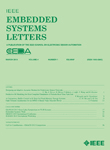
IEEE Embedded Systems Letters
Advancing Embedded Innovation, One Letter at a Time.IEEE Embedded Systems Letters is a prominent scholarly journal dedicated to advancing the field of embedded systems engineering, published by the IEEE - Institute of Electrical and Electronics Engineers. Since its inception in 2009, this journal has become an essential resource for researchers, practitioners, and students, offering a platform for the dissemination of innovative research and technological advancements in embedded systems. With an esteemed Q2 ranking in both Computer Science (miscellaneous) and Control and Systems Engineering, it ranks within the top half of the field, reflecting its impact and relevance. The journal covers a wide array of topics, including hardware-software co-design, real-time systems, and system-on-chip architectures, making it an invaluable reference for those engaged in the development of cutting-edge technologies. Subscribers benefit from exclusive access to rigorously vetted articles, conference reports, and reviews, contributing to the vibrant dialogue within the embedded systems community. With its commitment to excellence, IEEE Embedded Systems Letters serves as a critical avenue for fostering collaboration and innovation in this rapidly evolving domain.

HardwareX
Advancing the Frontiers of Hardware InnovationHardwareX is an innovative open-access journal published by Elsevier, dedicated to the dissemination of cutting-edge research and developments in the fields of engineering and applied sciences. Launched in 2017, the journal has quickly established itself as a vital platform for researchers and practitioners, focusing on the intersection of hardware design and instrumentation across various disciplines, including Biomedical Engineering, Civil and Structural Engineering, Industrial and Manufacturing Engineering, Instrumentation, and Mechanical Engineering. As of 2023, HardwareX is classified in Q3 in Biomedical Engineering and Q2 in the other listed fields, reflecting its growing influence and recognition in the academic community. With a commitment to facilitating accessible knowledge, HardwareX serves as an essential resource for students, researchers, and professionals seeking to advance their work and collaborate across interdisciplinary boundaries. The journal's comprehensive focus and notable Scopus rankings—such as its position in the 65th percentile for Mechanical Engineering—underscore its significant impact within the scientific community.
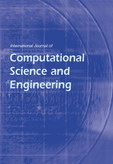
International Journal of Computational Science and Engineering
Driving Excellence in Computational Techniques and MethodologiesThe International Journal of Computational Science and Engineering, published by InderScience Enterprises Ltd, is a premier platform dedicated to the interdisciplinary field of computational science and engineering. With an ISSN of 1742-7185 and an E-ISSN of 1742-7193, the journal has been serving the academic community since its establishment in 2005 and will continue to do so until 2024. Notably categorized in the Q3 quartile for various domains, including Computational Mathematics, Software, and Hardware and Architecture, it holds respectable rankings in Scopus, evidencing its importance in advancing research and practice. While the journal is not open-access, it offers subscription options that ensure wide dissemination among researchers, professionals, and students. The journal aims to publish high-quality original research articles, survey papers, and case studies that contribute to the theoretical and practical aspects of computational techniques and methodologies. In a rapidly evolving digital landscape, this journal is a valuable resource for those seeking to push the boundaries of knowledge in computational science.